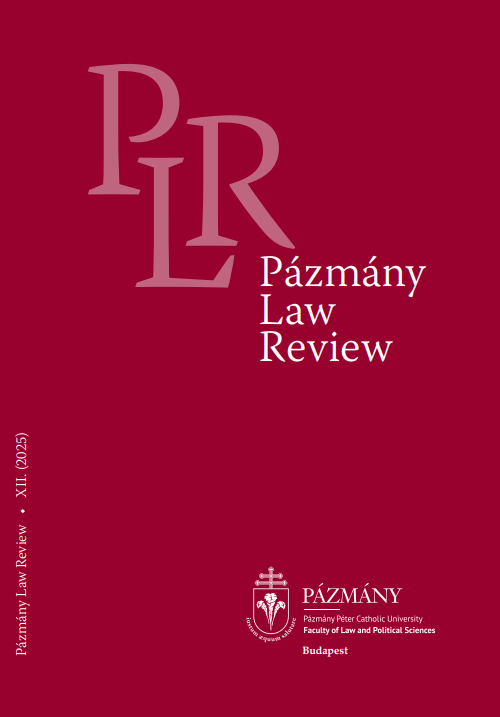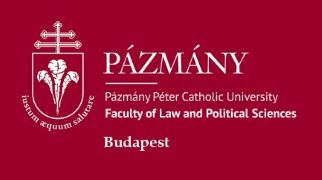Artificial Intelligence Generated Works and Patent Law
Analysis of the DABUS Case in the European Union, South Korea and Proposal for Vietnam
Abstract
The development of generative Artificial Intelligence has created several legal implications in intellectual property law. The most prominent example is DABUS case, in which DABUS – the AI invented by Stephen Thaler created a food container and a light by itself. Afterwards, Thaler tried to name the AI as the inventor of the product and claim the patent by being an employer of the AI. The case was trialled in 16 countries, including the European Union (EU) and South Korea, creating a major debate on the matters of inventorship and patentability. In Vietnam, since the invention of ViGPT, there has also been debates on similar issues. The aim of this paper is to provide Vietnam with solutions to this issue, thus the country can prepare for the phenomenon. This research will analyse and evaluate the DABUS decisions from the EU and South Korea, with comparison to Vietnamese law to answer questions on the inventor of AI-generated works and its patentability. The finding revealed that despite the differences in the law, the interpretation concluded similarly. However, as the direction of legislation in the European Union and South Korea were divergent, it can be beneficial for Vietnam to learn from the experience of both.
References
Enrico Bonadio – Luke McDonagh – Plamen Dinev: Artificial Intelligence as Inventors: Exploring the Consequences for Patent Law. Intellectual Property Quarterly 1, (2021), 48–66.
Terence Broderick: EU AI Act – What will this mean for Patent? Murgitroyd. (2023). https://www.murgitroyd.com/insights/patents/eu-ai-act-what-will-this-mean-forpatents (Accessed on: 20 November 2024).
EPO: Fourth Industrial Revolution. https://www.epo.org/en/news-events/in-focus/ict/fourth-industrial-revolution (Accessed on: 22 November 2024).
Stefan Feuerriegel – Jochen Hartmann – Christian Janiesch – Patrick Zschech: Generative AI. Business & Information Systems Engineering 66, 1. (2024), 111–126. https://doi.org/10.1007/s12599-023-00834-7.
Jonathan Charles Flowers: Strong and Weak AI: Dewayan Considerations. CEUR Workshop Proceedings 22, 87. (2023). https://ceur-ws.org/Vol-2287/paper34.pdf.
Hien Minh: Việt Nam – Hàn Quốc đồng hành hướng tới thời đại AI. [Vietnam – South Korea heading together towards AI generation]. Báo Chính phủ Việt Nam, [Journal of Government of Vietnam], (2024). https://tinyurl.com/5d7zzjw4 (Accessed on: 24 November 2024).
Giang Hoang: Trí tuệ nhân tạo là ưu tiên hàng đầu. [Artificial Intelligence is the first priority]. Báo Chính phủ Việt Nam, [Journal of the Government of Vietnam], (2022). https://tinyurl.com/4rz2b58b (Accessed on: 15 May 2024).
Quy Hoang: Luật Công nghiệp công nghệ số tạo môi trường thuận lợi để phát triển doanh nghiệp công nghệ số. [Digital Technology Industry Law creates a favourable environment for business to develop digital technology]. Báo dân tộc và phát triển, [Journal of Ethnicity and Development], (2024). https://tinyurl.com/bdftbewt (Accessed on: 25 November 2024).
Korean Intellectual Property Office: KIPO finds that AI cannot be a legal ‘inventor’ under the Korean Patent Act. (2022). https://tinyurl.com/57cs359r (Accessed on: 11 December 2024).
Korean Intellectual Property Office: Public survey regarding AI an AI inventor. KIPO. (2024). https://www.kipo.go.kr/en/HtmlApp?c=92008&catmenu=ek03_08_01> (Accessed on: 10 June 2024).
Korean Intellectual Property Office: 인공지능(AI)과 지식재산백서. [White paper on Artificial Intelligence and Intellectual Property]. (2022). https://www.korea.kr/archive/expDocView.do?docId=39883.
Kim Hoang Nguyen Ngo – Hong Quan Doan: Artificial intelligence and inventorship under the patent law regime: practical development from common law jurisdictions. Vietnamese Journal of Legal Studies 8, 1. (2023), 25–54. https://doi.org/10.2478/vjls-2023-0002.
Desmond Osaretin Oriakhogba: DABUS gains territory in South Africa and Australia: Revisiting the AI-inventorship question. South African Intellectual Property Law Journal 9. (2021), 87–108. https://doi.org/10.47348/SAIPL/v9/a5.
János Tamás Papp: Adapting to Change: AI’s Potential Impact on Journalism. Pázmány Law Review XI, 1. (2024), 17–31. https://doi.org/10.55019/plr.2024.1.17-31.
Young-bo Shim – Dong-Hwan Kim: South Korea: IP Office’s DABUS Nullification Highlights Stance Towards Ai Inventors. I AM, (2024). https://tinyurl.com/5e2uev64 (Accessed on: 23 November 2024).
Min Son: Can AI be named as an inventor in Korea? Managing IP. (2024). https://tinyurl.com/mujzjh3s (Accessed on: 9 June 2024).
World Intellectual Property Office (WIPO): Global Innovation Index 2024. (2024). https://www.wipo.int/web-publications/global-innovation-index-2024/en/index.html.
World Intellectual Property Office (WIPO): Global Innovation Index 2024: Switzerland, Sweden, US, Singapore, UK Top Ranking; China, Türkiye, India, Viet Nam, Philippines Among Fastest 10-Year Risers; Dark Clouds for Innovation Investments. (2024). https://www.wipo.int/pressroom/en/articles/2024/article_0013.html (Accessed on: 20 November 2024).
World Intellectual Property Organization (WIPO): Standing Committee on the Law of Patents: Artificial Intelligence (AI) and Inventorship [2023] Thirty-Fifth Session. (2023), 5–6. https://www.wipo.int/edocs/mdocs/scp/en/scp_35/scp_35_7.pdf





